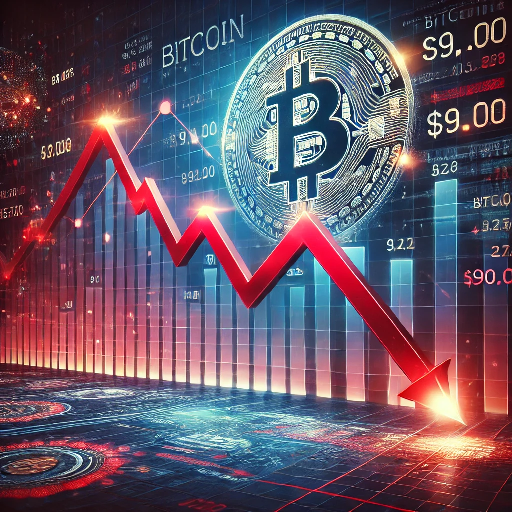In recent years, Brazil has positioned itself as a key player in the global cryptocurrency market. The South American giant has seen a significant rise in cryptocurrency adoption, prompting the need for a robust regulatory framework to ensure the market’s growth and integrity. This article explores Brazil’s journey towards establishing a comprehensive crypto regulatory framework, highlighting the key legislative milestones, current regulations, and the future outlook for cryptocurrencies in the country.
The Rise of Cryptocurrencies in Brazil
Cryptocurrencies have gained substantial traction in Brazil, driven by economic instability, inflation, and a desire for diversified investment opportunities. According to a 2023 report by Chainalysis, Brazil ranked among the top ten countries in terms of cryptocurrency adoption globally. The growing interest in digital assets has prompted the government and regulatory bodies to take a proactive stance in developing regulations that balance innovation with investor protection.
Legislative Milestones in Brazil’s Crypto Regulation
- Early Attempts and Initial Proposals (2015-2018) Brazil’s initial steps towards regulating cryptocurrencies began in 2015, with the establishment of a special commission in the Chamber of Deputies to study the impacts of digital currencies. The primary focus was to understand the technology and its potential implications for the financial system. However, these early efforts were largely exploratory and did not result in concrete regulatory measures.
- The Introduction of Bill 2303/2015 One of the first significant legislative attempts was Bill 2303/2015, introduced by Deputy Aureo Ribeiro. The bill aimed to regulate the use of virtual currencies and air mileage programs. It proposed that cryptocurrency exchanges should register with the Brazilian Central Bank (BCB) and adhere to specific operational guidelines. While the bill marked an important step, it faced several revisions and delays over the years.
- Advancements with Bill 2060/2019 In 2019, Brazil took a more structured approach with the introduction of Bill 2060/2019. This bill, also sponsored by Deputy Aureo Ribeiro, sought to create a comprehensive regulatory framework for digital assets. It emphasized the need for transparency, anti-money laundering (AML) measures, and consumer protection. The bill proposed that the Brazilian Securities and Exchange Commission (CVM) and the BCB oversee the crypto market, delineating their respective roles in supervising and regulating the industry.
The Crypto Regulatory Framework Landscape
As of 2024, Brazil’s crypto regulatory framework has evolved significantly, characterized by a combination of existing financial regulations and new legislative measures specifically targeting digital assets.
- Central Bank of Brazil (BCB) and Financial Supervision The BCB plays a crucial role in overseeing the financial stability of the crypto market. While cryptocurrencies are not considered legal tender in Brazil, the BCB monitors their impact on the financial system. In 2022, the BCB introduced new guidelines requiring cryptocurrency exchanges to report all transactions exceeding a certain threshold, aimed at enhancing AML and combating the financing of terrorism (CFT) efforts.
- Securities and Exchange Commission (CVM) Oversight The CVM oversees the issuance and trading of crypto-assets that qualify as securities. In 2020, the CVM issued a directive clarifying that initial coin offerings (ICOs) and other token sales must comply with existing securities regulations. This move aimed to protect investors from fraudulent schemes and ensure that issuers provide adequate disclosures.
- Taxation of Cryptocurrencies The Brazilian Federal Revenue Service (RFB) has also implemented specific tax regulations for cryptocurrencies. Since 2019, individuals and entities must report their crypto holdings and transactions in their annual tax returns. The RFB has set stringent penalties for non-compliance, highlighting the importance of transparency and accountability in the crypto market.
The Role of Innovation and Fintech
Brazil’s regulatory approach also reflects its commitment to fostering innovation in the fintech sector. The government has established several initiatives to support fintech startups, including those operating in the crypto space. The Central Bank’s regulatory sandbox, launched in 2020, allows fintech companies to test new technologies and business models under a controlled regulatory environment. This initiative has provided a platform for crypto-related projects to innovate while ensuring compliance with regulatory standards.
Challenges and Criticisms of Crypto Regulatory Framework
Despite significant progress, Brazil’s crypto regulatory framework faces several challenges and criticisms:
- Regulatory Clarity and Consistency One of the main criticisms is the lack of clarity and consistency in the regulatory framework. Market participants often find it challenging to navigate the overlapping jurisdictions of the BCB, CVM, and RFB. Clearer guidelines and coordination between regulatory bodies are essential to create a more cohesive regulatory environment.
- Finding the Optimal Balance Between Regulation and Innovation Finding the optimal balance between regulation and innovation is a delicate endeavor. Overly stringent regulations could stifle innovation and drive crypto businesses away from Brazil, while lax regulations could expose investors to risks. Policymakers must continuously adapt to the evolving nature of the crypto market to maintain this balance.
- Upholding Compliance with Regulatory Requirements Upholding compliance with regulatory requirements presents another major challenge. The decentralized and anonymous nature of cryptocurrencies makes it difficult to monitor and enforce regulations effectively. The authorities need to invest in advanced technologies and collaborate with international bodies to enhance their enforcement capabilities.
The Future of Crypto Regulatory Framework in Brazil
Looking ahead, Brazil’s crypto regulatory framework is expected to continue evolving. Priority areas will likely encompass:
- Enhanced Regulatory Coordination Improved coordination between the BCB, CVM, and RFB will be crucial to streamline regulations and provide greater clarity to market participants. Joint initiatives and shared regulatory frameworks could help achieve this goal.
- Adoption of Global Standards Brazil may adopt global standards and best practices for crypto regulation to align with international norms. Collaborating with organizations like the Financial Action Task Force (FATF) could enhance Brazil’s regulatory framework and facilitate cross-border cooperation.
- Focus on Consumer Protection Strengthening consumer protection measures will remain a priority. This includes implementing robust AML/CFT regulations, ensuring transparency in crypto transactions, and safeguarding investors against fraudulent schemes.
Conclusion of Crypto Regulatory Framework
Brazil’s journey towards establishing a comprehensive crypto regulatory framework reflects its commitment to fostering a secure and innovative digital asset market. While significant progress has been made, challenges remain in achieving regulatory clarity, balancing innovation with investor protection, and ensuring effective enforcement. As Brazil continues to refine its regulations, it has the potential to become a leading hub for cryptocurrency innovation in Latin America and beyond. By adopting a balanced and forward-looking approach, Brazil can harness the benefits of cryptocurrencies while mitigating the associated risks, paving the way for a vibrant and sustainable crypto ecosystem.


















